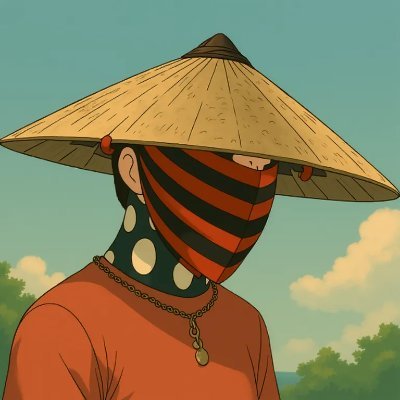# Verifiable Computing - RiscZero CEO Podcast Interview
The rapid development of AI enhances productivity but also lowers the cost of counterfeiting/fraud. More RWA is being brought on-chain, but are these on-chain assets programmatically verified and audited? Without verification guarantees, these RWA assets face significant risks. I remember a wave of zk audits for CEX assets around 2023-2024, but as more RWA goes on-chain in the future, asset verification and tracking audits will be even more necessary. In the future, the verifiability and program transparency of the internet will become key features. The combination of blockchain with AI/RWA has enormous potential, and verifiable computing is one of the core infrastructures here.
In verifiable computing, zk projects @RiscZero and @boundless_xyz achieve verifiable computing through RISC-V and ZK VM. Since 2003, RiscZero has been evolving from zkvm to specific zk L1. Below, I share a previous podcast interview with their founder @zeroknowledgefm to gain a deeper understanding of the team's and project's technical choices, business ideas, etc. This interview was conducted before @boundless_xyz was released, but previous discussions have already revealed the L1 plans.
If your English listening skills are good? Listen to the original version directly:
Interview Summary:
Risc0's core technology ZK VM and RISC-V: Risc0 has built a ZK VM that runs RISC-V code, supporting programs compiled in languages like C, C++, and Rust, similar to a virtual microcontroller, with zero-knowledge properties (hiding inputs and programs).
Choosing RISC-V: Due to its open-source nature, lack of intellectual property restrictions, simplicity, and efficiency, along with compliance testing and formal model support, it is suitable for implementation in ZK circuits.
Privacy and Scalability: Supports zero-knowledge proofs for program execution and the program itself, initially focusing on scalability to support a complex application ecosystem, with privacy (like ZK identity) as a future direction.
Memory and Non-Determinism: Memory is represented by 32-bit numbers, encoding the initial state through a Merkle structure; supports non-deterministic data requests, where the guest (ZK VM) requests data from the host and verifies it, maintaining privacy.
Technical Implementation and Accelerating STARKs Applications:
Using STARKs to prove repetitive structures (like processor time steps), suitable for the VM's temporal execution model.
Recursive Support: In development, supports running Rust verifiers within the ZK VM, verifying proofs, and achieving incremental proofs (like from the genesis block to N+1 block).
Hardware Acceleration: Currently achieving 30,000 cycles/second on M1 Pro, with GPU acceleration (Metal/CUDA) expected to reach 1,000,000 cycles/second, and around 10,000,000 cycles/second on a 3090 GPU. Supports accelerator circuits like SHA-256, with future plans to add finite field and large integer modular multiplication accelerators.
Parallelization: The proof process can be parallelized, suitable for GPU acceleration, reducing latency, and supporting large-scale computations (like compiler runs).
Vision and Application Cloud 2.0:
The goal is to build a decentralized public cloud that supports DeFi, gaming, NFTs, and complex applications (like SQL databases, social media), achieving "transaction costs low enough to be negligible."
L1 Blockchain:
Developing L1, using ZK to optimize the consensus mechanism ("transaction proof"), determining the longest chain based on computational load rather than transaction count, supporting billions of transactions per second.
Use Cases: Including supply chain security (proving binaries come from audited source code), physical asset tracking, etc.
Ecosystem and Future Ecosystem Connections:
Plans to integrate with other blockchains (like Ethereum) through bridges or validators, supporting the verification of Risc0 proofs or running EVM on Ethereum.
Roadmap: The current version is open-source, with the next version (including recursion and GPU acceleration) about to be open-sourced. Plans to launch DevNet by the end of 2022 or early 2023, with testing sign-ups announced via Twitter and other platforms.
As Risc0 exists as L1, will it connect with other networks or network clusters? Like @VitalikButerin's eth, @gavinwood's @Polkadot, or Cosmos? Brian indicated that it will almost certainly connect. He views Risc0 technology as a broadly applicable tool. While having its own L1 vision, it also hopes this technology will serve other ecosystems.
Challenges and Thoughts on Programming Usability:
Lowering the developer threshold through existing languages and toolchains, without the need to learn new languages or arithmetic circuits.
Prospects for Hardware Acceleration:
In the short term, GPUs dominate due to immature mathematics and long ASIC development cycles; FPGAs and ASICs may be applied in specific SNARK circuits.
Competition and Positioning:
Unlike other ZK VM/EVM projects, Risc0 emphasizes generality and cloud-level scalability, balancing the Ethereum ecosystem and other networks.
Risc0 utilizes RISC-V and STARKs to build a ZK VM, addressing scalability issues in distributed systems, aiming for a decentralized public cloud that supports large-scale, privacy-preserving computations. The current open-source version is available, with GPU acceleration and recursive support coming soon, planning to build L1 and integrate with other ecosystems, suitable for scenarios like DeFi and supply chain security.
Complete interview content: long text image.
Show original
10.33K
0
The content on this page is provided by third parties. Unless otherwise stated, OKX is not the author of the cited article(s) and does not claim any copyright in the materials. The content is provided for informational purposes only and does not represent the views of OKX. It is not intended to be an endorsement of any kind and should not be considered investment advice or a solicitation to buy or sell digital assets. To the extent generative AI is utilized to provide summaries or other information, such AI generated content may be inaccurate or inconsistent. Please read the linked article for more details and information. OKX is not responsible for content hosted on third party sites. Digital asset holdings, including stablecoins and NFTs, involve a high degree of risk and can fluctuate greatly. You should carefully consider whether trading or holding digital assets is suitable for you in light of your financial condition.

